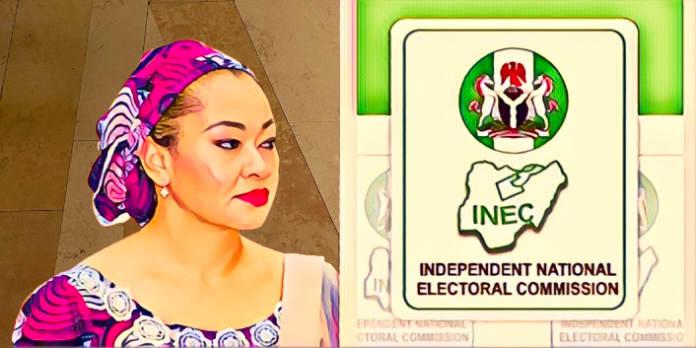KEY POINTS
- Senator Natasha alleges INEC assisted petitioners using unregistered group and fake address in recall attempt against her
- Claims follow her Senate suspension and sexual harassment allegations against Senate President Akpabio
- Case raises questions about recall process integrity amid Kogi political tensions
Senator Natasha Akpoti-Uduaghan has leveled explosive allegations against Nigeria’s electoral body, claiming the Independent National Electoral Commission (INEC) is colluding with political opponents to facilitate her controversial recall from office.
According to SaharaReporters, the Kogi Central lawmaker made the claims during a defiant homecoming rally in Ihima on Tuesday, despite a state government ban on public gatherings.
Natasha claims nonexistent address used in controversial recall process
Addressing thousands of supporters, the Peoples Democratic Party (PDP) senator revealed shocking details about the recall petition filed by a group calling itself APC Kogi Central Political Frontier. “We ran a check on the registration status…the Corporate Affairs Commission report came back negative. That association is not registered,” Akpoti-Uduaghan stated, alleging the petitioners used a fabricated address – “Number 4, Ogborokeba, Ogboroke” – that doesn’t exist.
The senator accused INEC of procedural irregularities, claiming officials helped petitioners correct deficiencies in their initial submission. “The first time the petition was submitted, they didn’t have an address, phone numbers…INEC went out of its way to guide them,” she alleged. These claims come as the recall process faces legal challenges in court, with the senator questioning why INEC hasn’t verified the petition’s authenticity.
Political analysts note this development escalates tensions in Kogi politics, where Akpoti-Uduaghan has been a vocal critic of Governor Usman Ododo’s administration. The recall attempt follows her high-profile suspension from the Senate and sexual harassment allegations against Senate President Godswill Akpabio, which she framed as part of systemic persecution.
In an emotional appeal, the senator connected her ordeal to broader challenges facing Nigerian women: “Many of our daughters in universities…have had lecturers ask for sexual favors. That’s the reality.” She vowed to continue fighting for women’s representation despite what she called “evil intentions of those who do not wish us well.”
INEC has yet to respond to the allegations, but legal experts suggest the address discrepancy could invalidate the petition if proven. The case highlights growing concerns about political weaponization of recall processes in Nigeria’s volatile democratic landscape.



